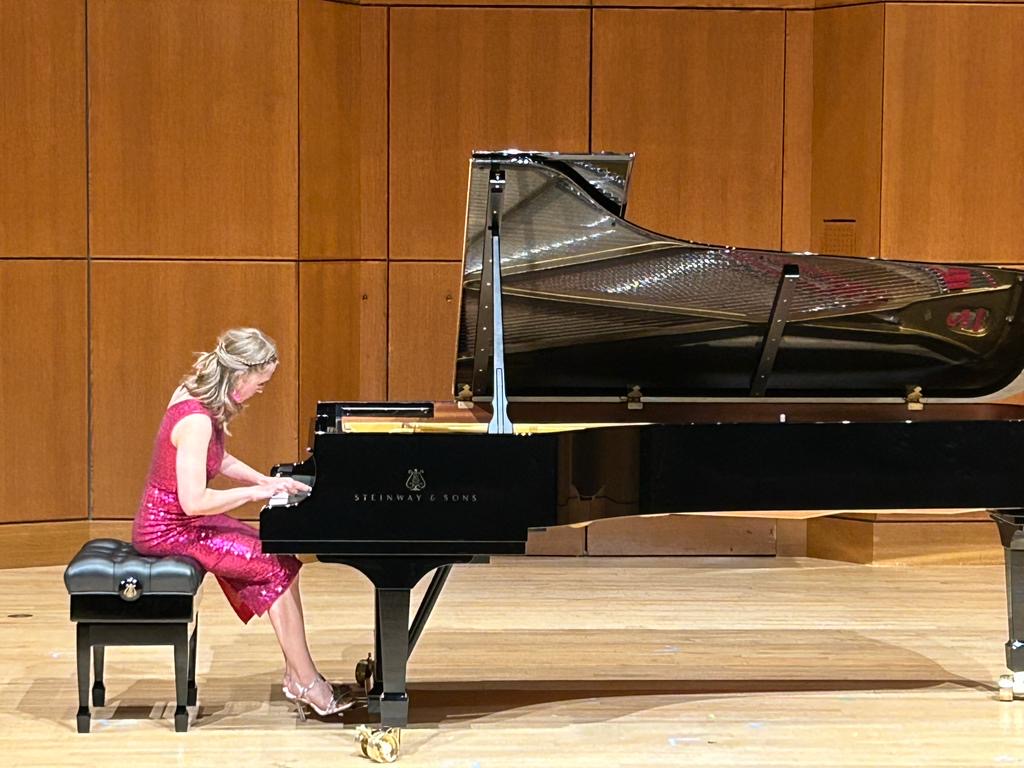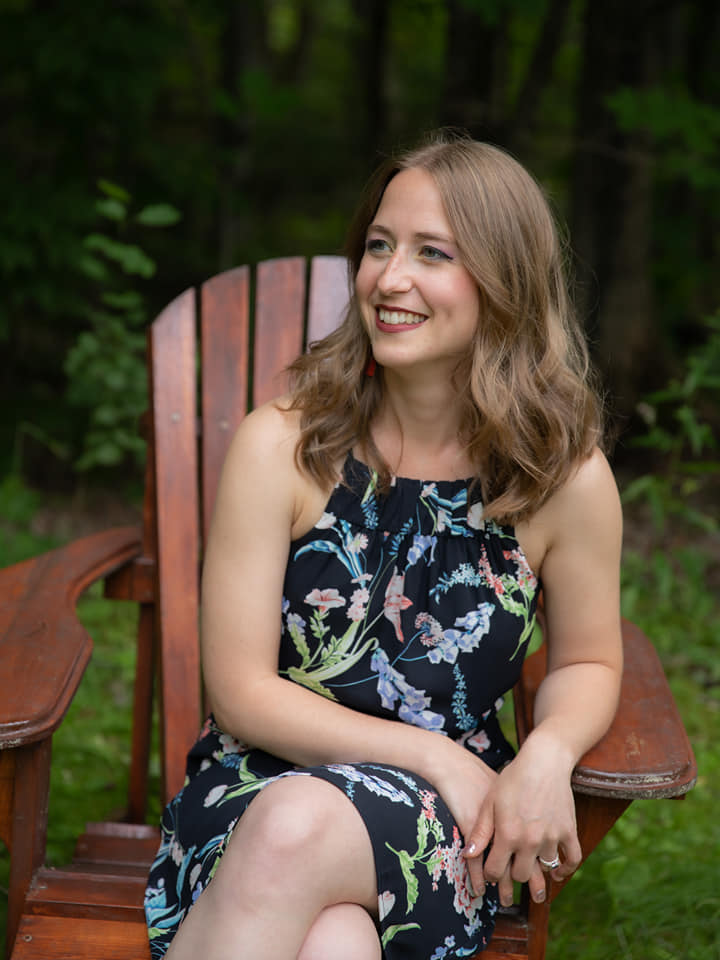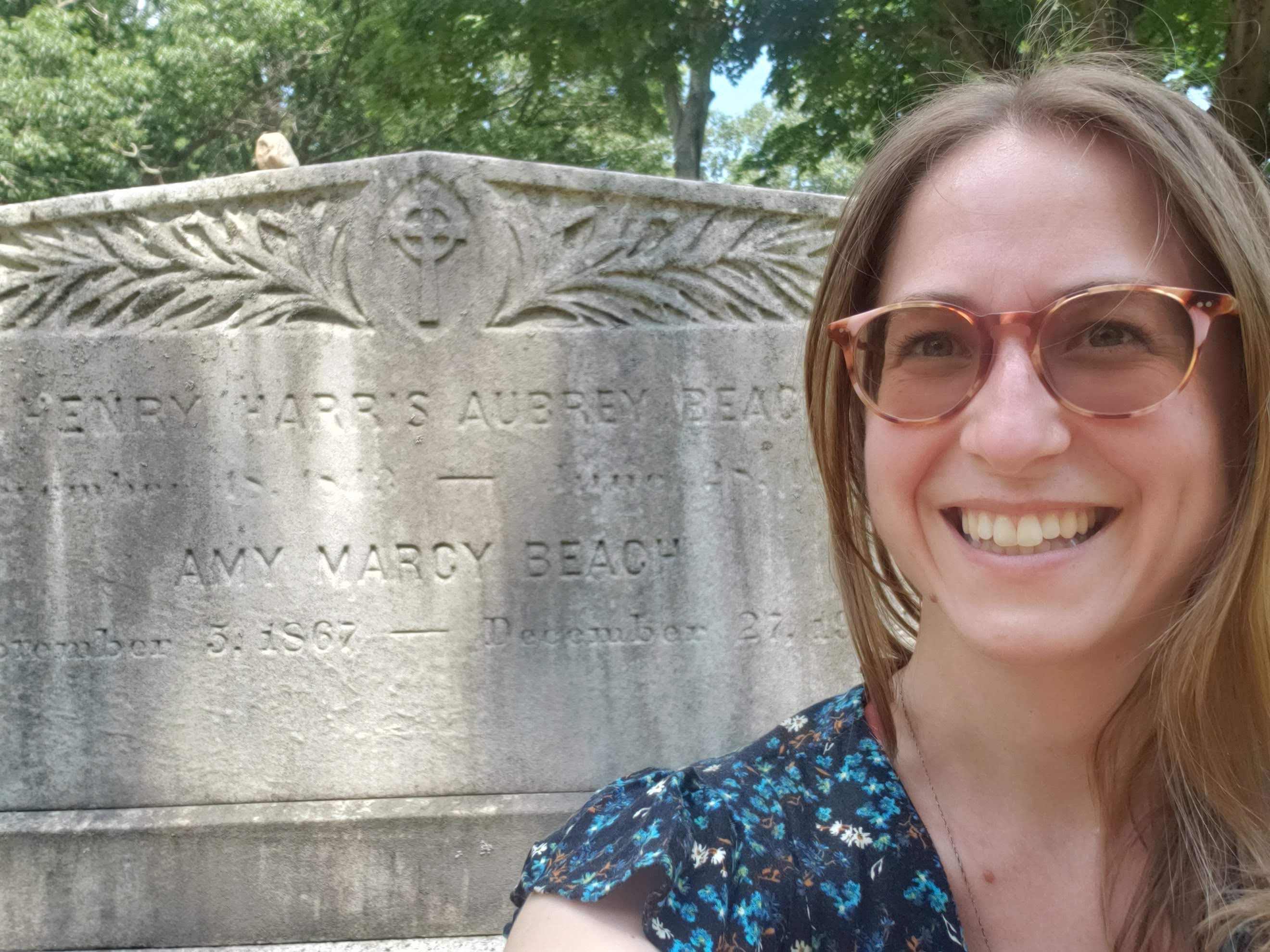Risa Tonita
A Public Scholar is one whose research and scholarly output is accessible to the public. I imagine a scholar who is not only interacting with other scholars through academic endeavours but who is actively engaging with people in their community in meaningful ways.
Research description
Although my main academic focus throughout my life has always been piano performance, my experience in theatre, dance, and singing have greatly inspired my interest in self-development and in self-expression. Both my interest in self-expression and my increasing concern for social equity have motivated me to research the necessity for pianists to relate to audiences by using their physical voices in the concert space. Using the work of political philosopher Hannah Arendt and feminist philosopher Adriana Cavarero I am studying various works for piano including works by women, works for solo pianist, works for collaborative pianist, and works for solo vocalizing pianist, and discussing facets of self-expression in each. My goal is to offer pianists relatable ways in which they can approach these pieces and by extension relate more deeply to their audiences by creating a reciprocal concert space. As such, I argue that a pianist can take what Arendt called "political action."
What does being a Public Scholar mean?
To me, a Public Scholar is one whose research and scholarly output is accessible to the public. I imagine a scholar who is not only interacting with other scholars through academic endeavours, but who is actively engaging with people in their community in meaningful ways.
In what ways do you think the PhD experience can be re-imagined with this Initiative?
I think that when it comes to doctoral work, the possibilities are endless. The Public Scholars Initiative (PSI) encourages students to push the boundaries within their doctoral projects and as such the results will vary from one student to another. To my mind, the PSI’s greatest effort is in supporting doctoral students who seek to bring their original work to broader communities rather than their work remaining available only to a small group of academics. One very real effect of this effort is that students might feel less isolated in their work and begin to build a wider network of connections to people of a greater variety of backgrounds and life experiences. Because doctoral students are working on original projects that should be contributing to existing scholarship, the pressures of the actual research and writing in addition to the reality of being a specialist in a very specific area of study can be extremely lonely. The PSI responds to this by encouraging scholars to distance themselves a bit from their isolated work and to connect with people through active human interaction.
How do you envision connecting your PhD work with broader career possibilities?
Because my PSI project includes recording a lecture-recital to be made available to the public through YouTube, my craft will be available to anyone who wishes to watch and listen to my work. This is invaluable to me as a performing pianist because most often musicians get asked to perform or to work on a particular project rather than applying for such. Therefore, it is important to be active in public. The process of creating a high-quality, edited recording is also invaluable as it has the potential to open up further recording projects in the future. Furthermore, the experience that I gain from doing archival research greatly strengthens my research skills in general which, I hope, will contribute to my having the capacity to teach a wide range of courses in a university setting.
How does your research engage with the larger community and social partners?
One of the fundamental goals of my research is to connect to audiences in a deeper, more relational way. By reframing the concert space, I aim to interact with my audiences in ways that are more accessible to anyone, no matter their cultural or educational background.
Why did you decide to pursue a graduate degree?
As I was completing my Master of Music degree I didn't feel like I was fully ready to be out in the world working as a professional pianist, even though I was about to have a second professional degree. I spent three years working as a freelance pianist and singer and auditioning for Doctor of Musical Arts programs. Over the three years, I became more and more aware that although I was working as a professional artist, the work I was doing wasn't stimulating my brain enough. I acknowledged that I was still lacking in technical and expressive skills at the instrument. I also knew that while I loved my private studio of piano and voice students, I longed for students with whom I could discuss music at a more advanced level. To be a music professor in performance would require a doctorate. Even though it was already a considerable amount of work to apply and audition to multiple universities and finally be accepted, I knew even before I began that it was what needed to happen for me to feel satisfied with the direction my life was heading.
Why did you choose to come to British Columbia and study at UBC?
At the time that I was considering DMA programs and playing auditions, I was beginning to feel more at home playing contemporary repertoire. Since I didn't have all that much experience working on new music I was interested in finding a teacher who could really guide me in this direction as well as someone who would help me to develop all areas of my skills as an artist. I knew of Dr. Hamm and of his work as a pianist who specialized in contemporary piano performance as well as his skill in other eras of music so I decided to audition and see if he would be interested in being my supervisor throughout the degree.
What is it specifically that your program offers that attracted you?
To be honest, I didn't know much of anything about the DMA program at UBC at all before I arrived here. I had read the website, but most of what concerned me at the time of application was the audition requirements! However, I did feel intrigued by Dr. Hamm in particular and I would say that, really, he was the primary reason for me to apply to UBC.
For you, what was the best surprise about graduate life, about UBC or life in Vancouver?
Earnest Ice Cream! Haha! While this is true, I would also like to say on a more academic note, that I met my co-supervisor after I arrived at UBC and cannot begin to express how much Dr. Law has changed my life for the better. I am incredibly grateful to have two supervisors who guide and support me in their own ways that complement my needs and competencies in this degree.
What aspect of your graduate program do you enjoy the most or are looking forward to with the greatest curiosity?
My program is divided into two large aspects - the performance side, and the research side - and I have to say that I really enjoy both. Playing the piano and exploring exciting music draws out from me aspects of my being that I'm not sure that I would know existed otherwise. Each piece is different and demands a different amount of emotional energy and commitment and I appreciate this. I have especially loved learning music that requires me to play on the strings and pins inside the instrument or to use my physical voice at the same time as I play. On the academic side of the equation, I appreciate being able to express myself through writing in my dissertation and I love developing my critical thinking.
What do you see as your biggest challenge(s) in your future career?
While I do not have children right now, I can see how the challenge of balancing family and work as a musician/researcher would be overwhelming. I feel that I have to be 100% invested in certain musical projects sometimes and I am so fortunate to have a husband who supports me no matter the scope of my work, but I would never want to neglect my children and so I can imagine how challenging it would be to manage both of the commitments to my artistry and to my family.
How do you feel your program is preparing you for those challenges?
I do not feel like my program is preparing me for these challenges at all. The niche of being a pianist is very competitive and I feel a lot of pressure to be fully committed to my academic work 100% of the time. However, since I have always worked outside of school in addition to working on the degree, this has taught me a good amount of balance in life and I have learned that sometimes I do have to say "no" to a gig in order to re-calibrate or just to have some more time to spend with my husband.
What aspects of your life or career before now have best prepared you for your UBC graduate program?
Spending three years out of school before coming to UBC was definitely valuable. I learned how to make a living as a freelance musician and how to develop my private studio of students. I learned how to balance work for money with working towards auditions for DMA programs. I developed some professional relationships and gained valuable experience as a professional pianist that would help me get work in a new city where no one knew who I was or what I was capable of before arriving.
What do you like to do for fun or relaxation?
I love to bake. Since music has taught me incredible problem-solving skills and adversity, a good baking challenge really excites me. Trying a new technique, or a recipe that takes multiple days to complete really makes me happy. I can get lost in a good baking challenge if I allow myself the time and energy. I also love to sing and to dance, to read fiction, and to go on walks with friends, with my husband, Alexander, and with my mini-Aussie, Luna. The pandemic also got me hooked on the candy from our neighbourhood corner store so I like getting candy on a Friday evening and watching TV or a movie at home.
What advice do you have for new graduate students?
If you're experiencing imposter syndrome you are not alone! Please be kind to yourself in ways that make sense to you. Sometimes getting an A+ is not worth all of the stress that goes into it and it is better to enjoy a dessert with a friend or take an evening off to do something enjoyable rather than feeling guilty about not working. Also, get a plan together for getting research and writing done as early as possible. It always works so much better when there is consistency and flow.
The Public Scholars Initiative (PSI) encourages students to push the boundaries within their doctoral projects and as such the results will vary from one student to another.







